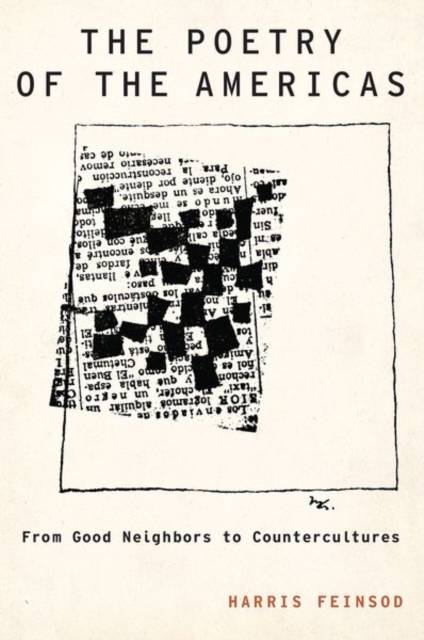
Bedankt voor het vertrouwen het afgelopen jaar! Om jou te bedanken bieden we GRATIS verzending aan op alles gedurende de hele maand januari.
- Afhalen na 1 uur in een winkel met voorraad
- Gratis thuislevering in België
- Ruim aanbod met 7 miljoen producten
Bedankt voor het vertrouwen het afgelopen jaar! Om jou te bedanken bieden we GRATIS verzending aan op alles gedurende de hele maand januari.
- Afhalen na 1 uur in een winkel met voorraad
- Gratis thuislevering in België
- Ruim aanbod met 7 miljoen producten
Zoeken
€ 74,45
+ 148 punten
Omschrijving
The Poetry of the Americas offers a lively and detailed history of relations among poets in the US and Latin America, spanning three decades from the Good Neighbor diplomacy of World War II through the Cold War cultural policies of the late 1960s. Connecting works by Martín Adán, Elizabeth Bishop, Paul Blackburn, Jorge Luis Borges, Julia de Burgos, Ernesto Cardenal, Jorge Carrera Andrade, Allen Ginsberg, Langston Hughes, José Lezama Lima, Pablo Neruda, Charles Olson, Octavio Paz, Heberto Padilla, Wallace Stevens, Derek Walcott, William Carlos Williams, and many others, Feinsod reveals how poets of many nations imagined a "poetry of the Americas" that linked multiple cultures, even as it reflected the inequities of the inter-American political system. This account offers a rich contextual study of the state-sponsored institutions and the countercultural networks that sustained this poetry, from Nelson Rockefeller's Office of the Coordinator for Inter-American Affairs to the mid-1960s avant-garde scene in Mexico City. This innovative literary-historical project enables new readings of such canonical poems as Stevens's "Notes Toward a Supreme Fiction" and Neruda's "The Heights of Macchu Picchu," but it positions these alongside lesser known poetry, translations, anthologies, literary journals and private correspondences culled from library archives across the Americas. The Poetry of the Americas thus broadens the horizons of reception and mutual influence--and of formal, historical, and political possibility--through which we encounter midcentury American poetry, recasting traditional categories of "U.S." or "Latin American" literature within a truly hemispheric vision.
Specificaties
Betrokkenen
- Auteur(s):
- Uitgeverij:
Inhoud
- Aantal bladzijden:
- 440
- Taal:
- Engels
- Reeks:
Eigenschappen
- Productcode (EAN):
- 9780190080990
- Verschijningsdatum:
- 1/12/2019
- Uitvoering:
- Paperback
- Formaat:
- Trade paperback (VS)
- Afmetingen:
- 155 mm x 239 mm
- Gewicht:
- 453 g

Alleen bij Standaard Boekhandel
+ 148 punten op je klantenkaart van Standaard Boekhandel
Beoordelingen
We publiceren alleen reviews die voldoen aan de voorwaarden voor reviews. Bekijk onze voorwaarden voor reviews.












